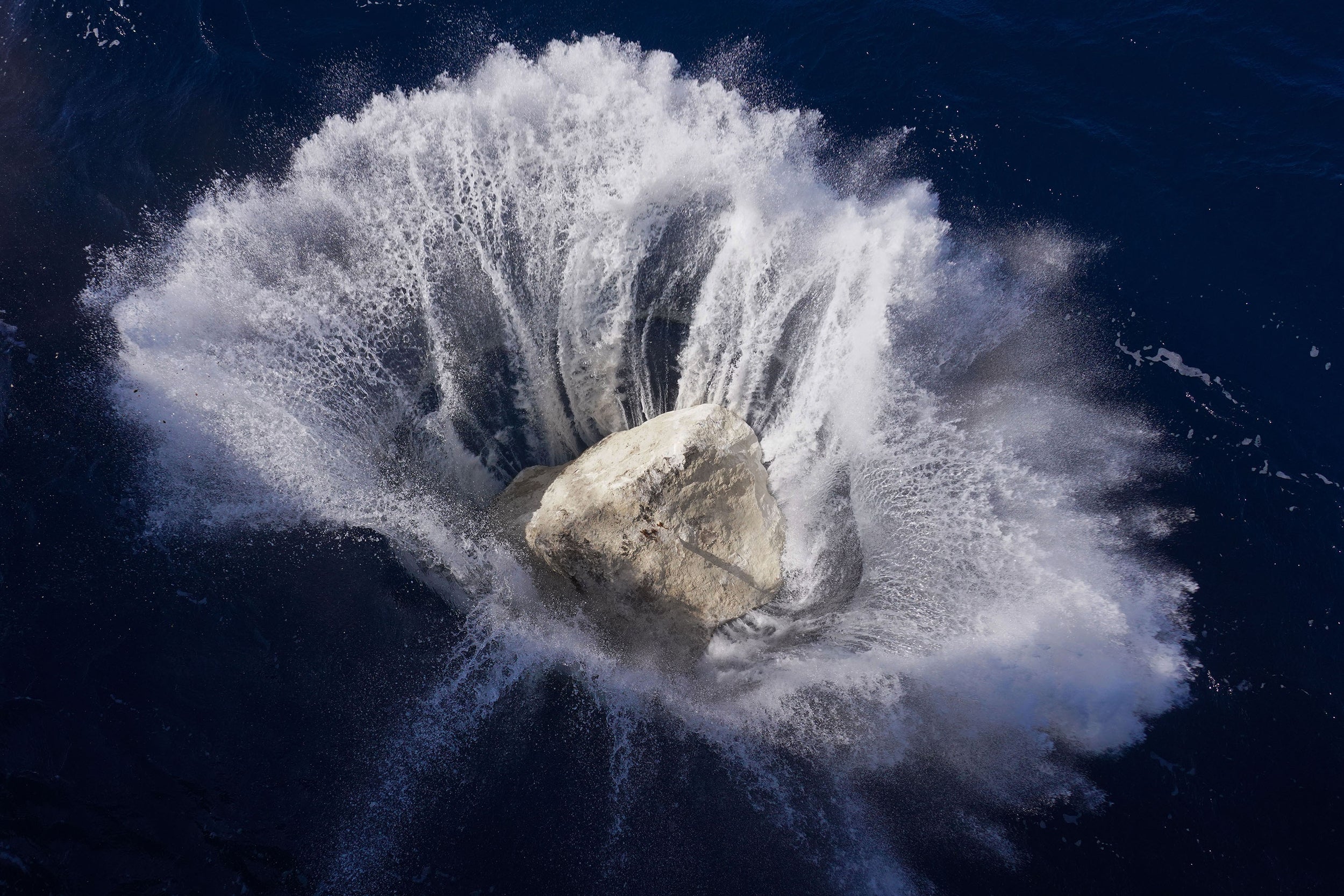Greenpeace drops boulders onto seabed to block ‘destructive fishing’
The environmental group took action on a portion of the South West Deeps (East) Marine Protected Area, 118 miles off the coast of Cornwall.

Your support helps us to tell the story
From reproductive rights to climate change to Big Tech, The Independent is on the ground when the story is developing. Whether it's investigating the financials of Elon Musk's pro-Trump PAC or producing our latest documentary, 'The A Word', which shines a light on the American women fighting for reproductive rights, we know how important it is to parse out the facts from the messaging.
At such a critical moment in US history, we need reporters on the ground. Your donation allows us to keep sending journalists to speak to both sides of the story.
The Independent is trusted by Americans across the entire political spectrum. And unlike many other quality news outlets, we choose not to lock Americans out of our reporting and analysis with paywalls. We believe quality journalism should be available to everyone, paid for by those who can afford it.
Your support makes all the difference.Greenpeace has placed a number of boulders on an area of seabed off the coast of Cornwall in an attempt to block what it describes as “destructive industrial fishing”.
The protest affects a portion of the South West Deeps (East) Marine Protected Area, 118 miles (190km) off the coast in the Western English Channel.
Campaigners and crew on board the Greenpeace ship Arctic Sunrise transported and deposited the 18 limestone boulders in a bid to prevent bottom-trawling.
The Marine Management Organisation (MMO) has said that the action is potentially illegal and has launched an investigation.
The environmental group’s action took place days after UK leaders failed to help secure a Global Ocean Treaty at Intergovernmental Conference 5 in New York.
Greenpeace says this threatens the Government’s aim to achieve at least 30% ocean protection by 2030.
In the last 18 months, the South West Deeps experienced almost 19,000 hours of industrial fishing, 3,370 hours of which was bottom-trawling, according to Global Fishing Watch data. The majority of industrial fishing vessels in the area were from France (53%) followed by Spain (30%) and the UK (9%).
The names of high-profile figures who support the action, including Simon Pegg, Stephen Fry, Conservative MPs Henry Smith and Sir Peter Bottomley, were stencilled onto the boulders before they were dropped.
Will McCallum, Head of Oceans at Greenpeace UK, said: “Greenpeace UK has created this underwater boulder barrier as a last resort to protect the oceans. We’d much rather the Government just did their job.
“Our new Prime Minister must protect local fishing communities and immediately ban industrial fishing in Marine Protected Areas by tweaking commercial fishing licences.”
A spokesperson from the MMO said: “We are very disappointed that Greenpeace has chosen to take this action to drop boulders to form a barrier as we don’t believe it is justified or will help protect our marine environment.
“It is also a requirement under the Marine and Coastal Access Act that any deposit of construction below high water is required to have a Marine Licence. Greenpeace do not hold, nor have they applied for one, and as such their activity is potentially illegal.
“As unlicensed activity has now taken place, MMO has launched a formal investigation in accordance with its regulatory function around marine licensing enforcement and is gathering evidence before considering its next response.”
Barry Deas, CEO of the National Federation of Fishermen’s Organisations, said that “boulders of that size represent a threat to the crews and the vessels that fish the area”, adding that they could be “a potential threat to life”.